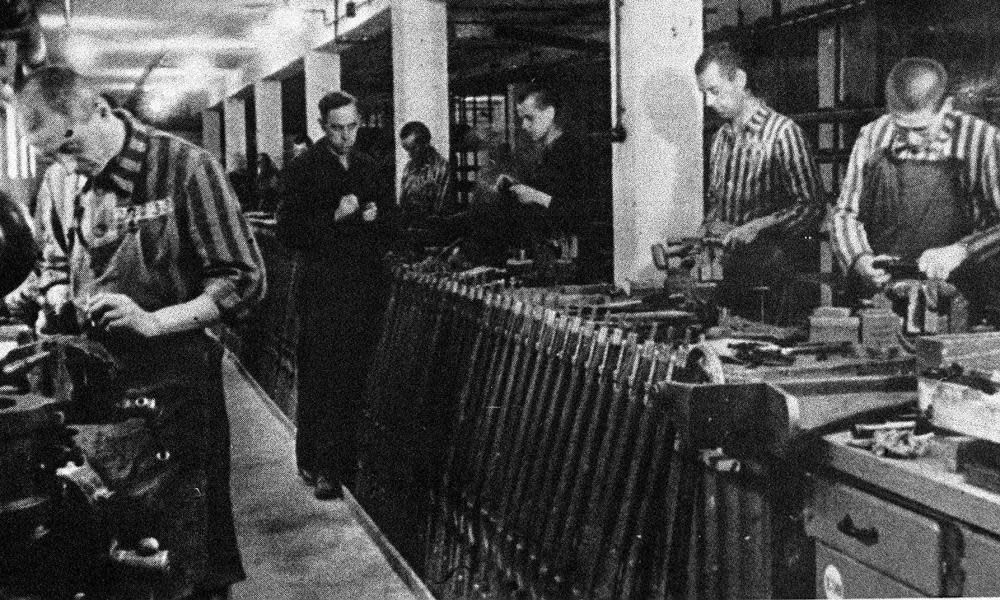Nazi slave labour economy could not compete with Britain | The big issue

We agree wholeheartedly with Will Hutton (“Brexit is our generation’s Dunkirk”, Comment). The Dunkirk evacuation, heroic though it was, did little to reduce the chance of a successful Nazi invasion, which was in any case “close to non-existent”. As he points out, the superiority of our military production, in particular, and of our economy, more generally, saw to that.
Moreover, although an inconvenient truth today, that superiority was built on “public initiative, public endeavour, public direction of industry, planning and state co-ordination”.
However, he misses one important point. Public initiative, endeavour and direction count for very little unless private initiative, endeavour and direction are given free expression – within, as well as outside, the firm.
Germanic economic theory had long-standing issues with the significance of this tenet, a problem exacerbated, but not originated, by the basic inhumanity of Nazi doctrine.
As a consequence, Nazi Germany’s economic expansion, such as it was, was built on the ultimately unstable platform of slave labour. As Adam Smith recognised long ago, “the work done by free men comes cheaper in the end than the work performed by slaves”. But no doubt Smith’s The Wealth of Nations as well as The Theory of Moral Sentiments were among the first books on the bonfire.
Dr William Dixon
City University, London EC1
Dr David Wilson
Walton-on-the-Naze
Your pieces marking the achievement of the evacuation of Dunkirk in 1940 failed to mention the 40,000 soldiers who were not repatriated. The majority of these were forced to march to Poland as prisoners of war, to spend the next four years working in mines and on farms, to all intents and purposes as slaves, before they were marched back into Germany over the winter of 1944.
My father was one of those, having joined the military in 1939 as a Territorial Army soldier from his South Yorkshire mining village. He kept a diary of those times; it is sparse and mentions little about conditions and treatment, but on liberation by the American army in 1945, he weighed six stone.
He lived until he was 88 after a working life in the Ministry of Defence, as a translator in the de-Nazification programme (he learned German and Polish) and subsequently as a computer programmer and auditor, until his longed-for retirement at 61. He never much talked about his wartime experiences, but he suffered a breakdown in his early 40s when he became aware that many former colleagues were suffering serious ill health or dying. As a child, I could never understand why Dunkirk was celebrated as a triumph and, while it is possible to be thankful for the fact that so many soldiers were rescued, it strikes me as a failure, if only for the 40,000 men who didn’t return home in 1940. An occasional mention of their fate would not go amiss.
Dr Mike Davis
Keele University
As Will Hutton so clearly illustrates with the example of Dunkirk, Britain is handicapped by a lack of understanding of its own history. The long narrative of a successful mixed economy, postwar recovery, full employment, new towns, a motorway system, nationalised industries and collective bargaining has been wiped from the collective memory by stories of unions causing inflation.
In fact, worldwide inflation began with Nixon’s closing of the gold “window” in 1971, which left national currencies to float. The catastrophic effect for the mixed economy of saturation propaganda against the unions was summed up by, of all people, Enoch Powell. “The entire trade union movement has been brought to accept that the trade unions are responsible, wholly or partly, for rising prices and the falling value of money. It is really an astounding spectacle: the trade unions have clapped the handcuffs on to their own wrists, gone into the dock and pleaded guilty to causing inflation.”
DBC Reed
Northampton

 Yahoo News
Yahoo News 
